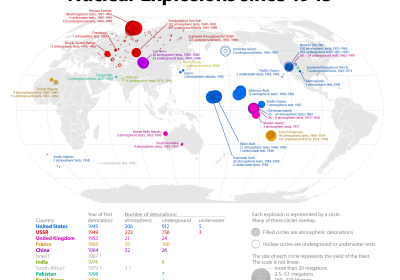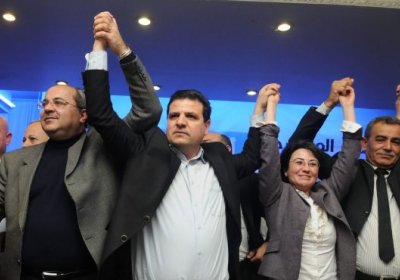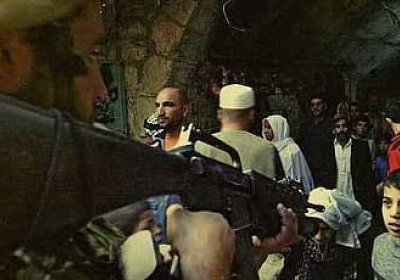 A Friday night march through Sydney city streets marked the 67th anniversary of Al Nakba, “the catastrophe”, the beginning of the violent dispossession of the Palestinian people.
A Friday night march through Sydney city streets marked the 67th anniversary of Al Nakba, “the catastrophe”, the beginning of the violent dispossession of the Palestinian people.
Israel
 A Friday night march through Sydney city streets marked the 67th anniversary of Al Nakba, “the catastrophe”, the beginning of the violent dispossession of the Palestinian people.
A Friday night march through Sydney city streets marked the 67th anniversary of Al Nakba, “the catastrophe”, the beginning of the violent dispossession of the Palestinian people.
Two new global developments emphasised the growing momentum of the global boycott, divestment and sanctions campaign targetting Israel.
The campaign was launched in 2005 by more than 100 Palestinian civil society groups in a bid to isolate Israel over its polices of occupation and apartheid against Palestinians.
In April last year, the government of the Marshall Islands announced it would be taking nine nations — China, France, India, Israel, North Korea, Pakistan, Russia, Britain and the US — to the International Court of Justice (ICJ) in The Hague over their possession of nuclear weapons.
White City, Black City: Architecture & War in Tel Aviv & Jaffa
By Sharon Rotbard
Pluto Press, £14.99
In July 2003, Unesco put the “White City” of Tel Aviv on its list of World Heritage Sites. It took almost 20 years of incessant campaigning by the Israeli state to secure this recommendation that, de facto, legitimised far-reaching aspects of Zionist ideology.
But was there any merit to the Tel Aviv case in the first place? In fact, the building of Tel Aviv began adjacently to Jaffa — one of the oldest continuously inhabited cities of the world — only from about 1909.
Israeli group Physicians for Human Rights has released two reports documenting the deterioration of Palestinian health under occupation.
Divide and Conquer documents the deterioration of Palestinian health in the West Bank and Gaza as the direct consequence of ongoing Israeli military occupation.
Israelis voted for the status quo in elections on March 17. The ruling Likud party and Prime Minister Benjamin Netanyahu were re-elected, as voters endorsed ongoing apartheid and military rule for the Palestinian population.
Israeli Jewish society is itself wracked by economic and social crisis. It is also conflicted by class, gender, religious and ethnic divides. But like all Israeli elections, the campaign was fought over how Israel should relate to its subject Palestinian population.
Let me be clear: I am not happy, as such, that Likud Prime Minister Benjamin Netanyahu won Israel's March 17 elections.
Netanyahu is a blood-soaked killer. He should be put on trial for his many crimes, from the relentless theft of Palestinian land to last summer’s massacre in Gaza — and I yearn to see that day.
Instro Precision, a factory in Kent, England, owned by Israeli arms manufacturer Elbit Systems was shut down on February 17 by four activists occupying the roof while others blockaded the entrance.
Instro Precision is a manufacturer of military targeting systems. Its optical equipment is used in drones such as those Israel used to bombard Gaza during the summer of 2014, say the activists. Such surveillance equipment has also been installed in Israel’s apartheid wall in the West Bank.
Palestinian student Lina Khattab, 18, a first-year media student at Birzeit University, was sentenced by an Israeli military court to six months imprisonment, a NIS6000 (US$1500) fine and three years probation on February 17.
She is also a folkloric dancer with the world-renowned El-Funoun Popular Palestinian Dance Troupe and is active in other cultural and political student activities at the university.
More than 700 creative professionals living in the Britain — including writers, visual artists, actors, musicians and many others — have signed up to a pledge to boycott collaboration with Israeli state-funded projects.
The announcement marks a significant step for the British cultural boycott campaign. There have been many open letters and other statements of support for Palestine from British artists, but the pledge brings together a huge number of creatives in one coordinated effort.
Sami Ziadna, who died as a result of excessive tear gas inhalation on Jaunary 18, was the 50th Palestinian citizen of Israel to be killed by Israeli police since October 2000.
Then, as protests spread throughout Palestinian communities in Israel, 13 unarmed demonstrators were shot and killed by police officers in northern Galilee.
About 1.7 million Palestinians carry Israeli citizenship, but dozens of discriminatory laws stifle their political expression and limit their access to state resources, including land and education.
Israeli MPs passed a motion on December 3 paving the way for early elections, Morning Star Online said that day. Further votes were expected in coming days to officially dissolve Israel's parliament, ushering in new polls on March 17 next year.
- Previous page
- Page 14
- Next page








